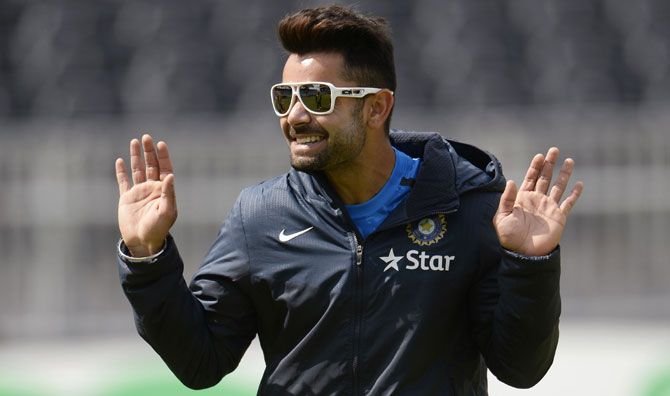
There is more to the cricketer’s rise in brand valuation than his cracking form on the cricket field, notes Sandeep Goyal
Virat Kohli is today, without doubt, India’s premier human brand. And, that transformation, the meteoric rise, has taken place between Diwali (October 2015) and Holi (March 2016).
Kohli’s rankings were on the ascendant for the last three to four years, but he remained in the shadow of his captain and senior team mate, MS Dhoni.
Besides sportsmen, typically lag the Bollywood troika of the Khans and Mr. Bachchan when it comes to celebrity rankings.
But Kohli has managed to change all that.
The World Cup T-20 ignited Brand Virat Kohli.
I studied the brand’s evolution on 64 parameters and found that the rise in valuations is quite unprecedented.
I have been tracking personality brands for well over a decade and such a major metamorphosis in a brand’s attribute wheel, that too in such a short period, has rarely been observed. One reason is, of course, the phenomenal exposure that live television provides today.
As a result after the T-20 matches, Virat’s explosive batting and soaring sixes -- not to forget his nimble running between the wickets -- were seared into public memory.
When I finished one round of field studies in October-November last year, over a sample of over 2,500 respondents across five cities, Kohli was not in the position he is today. I then ran a purposive sample just after the World Cup T-20.
In the interim six months, he had zoomed to the top, leaving Salman Khan who was top-of-the-pops in the last round way behind.
What makes Virat so special?
When we look at his brand map, we find that his scores have zoomed on parameters labelled tough, dynamic, innovative and reliable.
Kohli is regarded as progressive and contemporary, but most importantly, he is rated very high on being distinctive, stylish and prestigious.
On most of these attributes his scores have doubled in a mere six months; that too across gender, demographics and geographies.
Judging by these responses, there is obviously more to Brand Virat than just his cricket.
The fact that he is no longer seen to be arrogant (as he was perceived in his early years) is interesting.
He is believed, on the contrary, to be very approachable and straight-forward, which means that his behaviour, on-field and off-the-field, is being closely watched by millions of his fans.
His flying a kiss off his bat to then lady love Anushka; his bowing to icon Sachin Tendulkar in the pavilion on achieving a batting milestone; his appeal to everyone on social media to not troll his ‘ex’ -- these actions seem to have endeared him to many.
And for brand managers all around the world, these are all indicators of the making of a brand that transcends mere power drives and lofted maximums.
In the abbreviated brand wheel of Virat, the one attribute I have deliberately not analysed is ‘fun’.
Because, that would make for an entire subject in itself.
Is it the batting that is entertaining?
Or is it that his tattoos and metrosexual looks make him irresistible?
Or is it that his ever-ready smile and his interaction with his team-mates are influencing his brand value?
Or is it his willingness to click selfies with his fans? Perhaps it is all of that, and a little bit of that what we call the X-factor.
In 2014, American Appraisal had estimated Kohli’s brand value at $56.4 million, placing him fourth on the list of India’s celebrity brands.
Today he is worth a lot more. His bat deal with MRF is said to be the costliest deal in Indian cricket history.
In 2014, UK’s Sportspro magazine rated Kohli as the second most marketable athlete in the world, next only to Lewis Hamilton, and ahead of Cristiano Ronaldo, Lionel Messi and Usain Bolt.
I wouldn’t be surprised if he tops the list this year.
Virat Kohli is young.
Just 28.
He is already India’s Test captain and perhaps a year or two away from leading the Indian side in ODIs and T-20 too.
He has been ranked No.1 in the ICC rankings more than once.
He endorses almost 20 brands — Adidas to Pepsi to Tissot to Colgate. Yet, despite his meteoric rise, he remains rooted and real.
He wears black wristbands as a cricket superstition; earlier, he wore the same pair of gloves which he believed had helped him ‘keep scoring’.
Apart from a religious black thread, he has also been wearing a kara (a steel bracelet) on his right arm since 2012, fans read this as vulnerability in a star. And that makes a brand as human as he can possibly be!
Sandeep Goyal is a media and advertising industry veteran whose experience spans 30 years. He is currently writing his PhD thesis on human brands.










